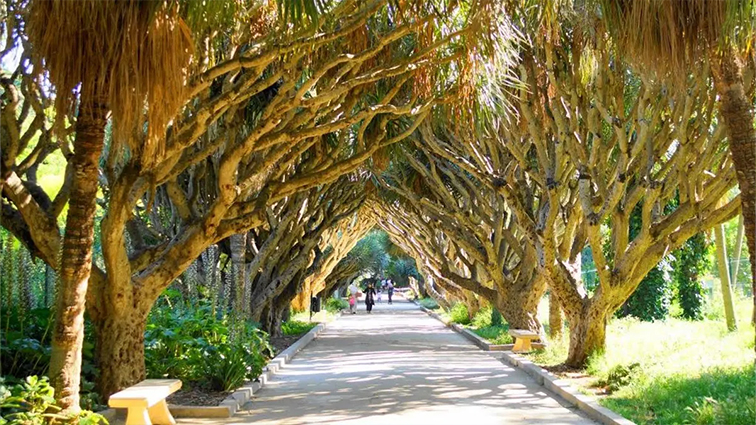The celebrations of the third centenary of the founding of the Mouloudia Club of Algiers led to a fire in the “Hamma” garden, one of the oldest gardens in Algeria and the world, and a prominent cultural and environmental symbol in the heart of the capital.
The fire broke out yesterday evening, Thursday, and continued for hours until midnight, and it covered an area estimated at 400 square meters and destroyed several historic palm trees and areas of dry trees, despite the intervention of civil protection teams to control the fire and protect them from additional damage.
The fire caused a state of shock among the residents of the capital and social media users, with opinions varying between those condemning the use of firecrackers in sports celebrations and those defending community customs and traditions. Some opinions indicated the need to define and regulate the use of firecrackers to ensure security and protect public and private property.
The organizers of the celebrations and representatives of the club stressed their commitment to maintaining security and respecting public property during the organization of the events, at a time when the authorities have not yet determined the final results of the ongoing investigations into the causes of the fire.
The Hamma Garden was established in Algiers in 1832, two years after the start of the French occupation of Algeria. It is a scientific experiment garden that occupies an area of 32 hectares and is considered a natural museum, extending in the form of an amphitheater from the foot of the National Museum of Fine Arts to Hassiba Ben Bouali Street.
Before the fire, the garden contained 2,500 species of plants and trees that were hundreds of years old. It contains more than 25 species of palm trees. It contains a garden in the classical French style and another with a British character. It is characterized by a climate that differs from the climate of the capital, Algiers, as the temperature in the garden does not drop below 15 degrees in the winter and does not exceed 25 degrees in the summer.
Libyan-Algerian-Tunisian agreement to enhance economic cooperation and inter-trade
